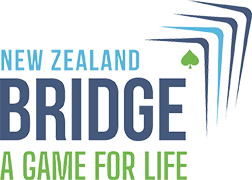
Requirements for Tournaments
APPEALS COMMITTEE
Powers And Duties
The convened Appeals Committee is considered to have been delegated all judiciary powers and duties of the Tournament Committee, save for any that may have been specifically withheld by NZCBA regulations. It must adjudicate every case that is brought before it, but may dismiss a charge or protest as being either trivial or frivolous and assess a penalty upon the player(s) filing such a charge or protest. If such a penalty is assessed then the severity of such a penalty is at the Appeals Committee's discretion taking into account the circumstances of each individual case. However, the normal size of such a penalty would be one quarter of the matchpoints available on a board, or 5 IMPS, or 1 VP. The Chief Director must inform the committee that its rights and powers include, but are not limited to, the following:
(a) Uphold the Director's Ruling
When the appeal is against the ruling given by the Director, the Committee may simply uphold the Director's ruling.
(b) Cancel the Director's Ruling and Impose A Solution
The Committee may cancel the Director's Ruling and make any adjustment it believes will constitute an equitable solution. This adjustment may be:
1. Award of an Adjusted Score
The Committee may adjust the matchpoint score received by the non-offending side without a corresponding change in the score of the offending side.
2. Assess Matchpoint Penalties
The Committee may assess a matchpoint penalty against the offenders without granting any compensation to the non-offending side.
3. Cancel Results
The Committee may cancel the result on the board in question and award an average (plus or minus) score to either or both sides.
4. Award Overall Percentage Scores
The Committee may award one or both sides their overall percentage score in the session on the board in question (in effect not permitting the board to affect the disputant's score one way or another).
5. Adjusted Total Point Score
The Committee may attempt to estimate what final contract would have been played had the infraction in question not occurred, and to calculate the probable results that would have been achieved. It may then order the board scored as though that result was actually attained at the table.
6. Law 93 B.3
The Committee may not overrule the Director on a point of law or regulations, or on exercise of his disciplinary powers. The Committee may recommend to the Director that he change his ruling.
(c) Ethics and Conduct Cases
1. Jurisdiction
The Appeals Committee has jurisdiction over all cases involving ethics, misconduct, and private understandings. The cases may be brought before it by the Chief Director, or may be accepted for review by the Committee without prior referral by a Director. It is not necessary that a formal charge be lodged.
2. Penalties
In addition to matchpoint penalties designed to rectify the score or discipline offenders, the Committee may assess disciplinary penalties in conduct and ethics cases. These penalties include, but are not limited to, the following:
(a) Exclusion from participation from any or all of the remaining sessions of the Tournament.
(b) Imposition of a Suspended Sentence
The Committee may impose a penalty upon an offender and then suspend the execution of the penalty until some prescribed date when it will be cancelled, subject in the interim to the offender's good behaviour.
(c) Cancellation of Master Points Won
The Committee may cancel any master points won by the offender(s) in the event where the transgression took place. This power is limited strictly to the event in question.
TIE BREAKING PROCEDURES FOR QUALIFYING PLACES OR DETERMINING ORDER OF QUALIFIERS
Reference - NZ Bridge Manual.
